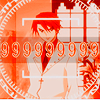And, yes, there is a reference to the Deku Tree's words, in the end, for Daphnes says he has "scattered the seeds of the future."
Once again, you're ignoring context and intended meaning. It's a metaphor. Only a fucking idiot would see that as a reference to the Deku Tree. IN CONTEXT, it's clear that he's referring to the fact that he's given the future a new hope beyond Hyrule, because that was the point of that entire scene. For him to be randomly bringing up the Deku Tree's plan, which he may not even have known about, is ridiculous. No fucking remotely decent narrative would have such a total non-sequitur, COMPLETELY CONTRADICTING everything the King just said. The only way your interpretation makes sense is if you entirely remove it from the context. It's simply not acceptable, you can't just deny that intended meaning matters. You did exactly the fucking same thing with the mirror; looking for a meaning that doesn't exist, by manipulating the wording.
No it's not. It's just artsy and happens to tell us things the intro text does not.
It is most certainly part of the plot, it's telling the backstory of the game, and was deliberately written for that purpose. It creates TWW's initial context.
It was nice of you to completely ignore my entire post. I wrote that in a last ditch attempt to be civil, but since you're going to ignore me, it obviously won't work. You didn't even answer my question about Ganondorf, although I didn't expect you to.
I'm not saying you're retarded, I'm saying you're abusing and ignoring context in order to create a different meaning to the one intended, because you fail to understand this context. Out of context, the hat is absolutely meaningless, but the reason why it's strong evidence is because of everything TMC establishes. I, unlike you, take the individual plots of games over anything else. And do you know why I do that? Because that's what the developers do, and the entire point of timeline debate is to work out what the developers were thinking!
I'm almost certain you DON'T understand Ganondorf's dying line, because you don't understand the context of TWW. If you did, you would not ever favour the possibility of Hyrule returning. So let me explain it to you - this is something not at all about the timeline, but about TWW's story alone, which is why I consider it so important to determining the meaning of TWW's story with respect to the timeline.
TWW's main underlying theme is change. The game is essentially about two things: letting go of the past, and accepting the future. Link and Zelda symbolise the future, Ganondorf, the King and Hyrule symbolise the past (OMG symbolism actually being important, I must be mad). The main motif of this story is wind. Wind symbolises change. Link is the Hero of Winds, because he's the hero who represents this change that is central to the game's plot. TWW's story is so beautifully done because it works this change theme into the gameplay itself, having you control the wind in order to reach the future.
The ultimate goal, then, is to set the world on a path to a better future. The King realises this at the end, which is why his wish with the Triforce was to permanently destroy Hyrule, and to create a hope for future generations. The two are CLEARLY mutually exclusive in the text, and so your interpretation of the final line of the game is not valid. Out of context, perhaps, but in context it's very clear what he means - which is why I'm trying to teach you the importance of context, so that you don't misunderstand vital dialogue. Anyway, the end result is that the King, Ganondorf and Hyrule, who are all symbols of the past, die. And each of them realises the importance of change, and realise that fate intended for this to happen. So what does Ganondorf say when he dies?
Ughnn... Heh heh...
The wind...
It is blowing...
Suddenly, this makes a lot of sense. Wind symbolises change. Ganondorf's statement reflects the fact that as he dies, he finally comprehends that things must change, and that the future is headed on a different path to the past. The King also realised this, which is why he destroyed Hyrule. The important thing was letting go of the past. In their inability to do that, the King and Ganondorf were the same - the King even says this himself, so this is in no way hidden in the subtext. That's why the King represents something "bad", even though he's good. TWW is his attempt to make amends and restore hope.
See what context helps us to understand that individual quotes do not? This is just one example. It's something that you need to look at the games as individual stories to understand. As I said, we're trying to work out what the intent of the creators was, and for the creators, game plot is much more important than timeline plot. That's why TMC's game plot reasons to be first far outweigh anything else.
Edited by Impossible, 10 April 2008 - 01:30 AM.















